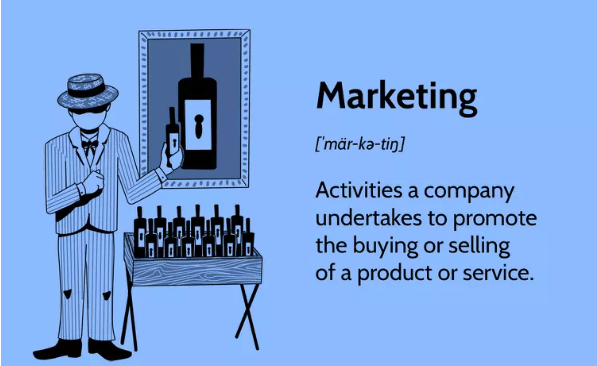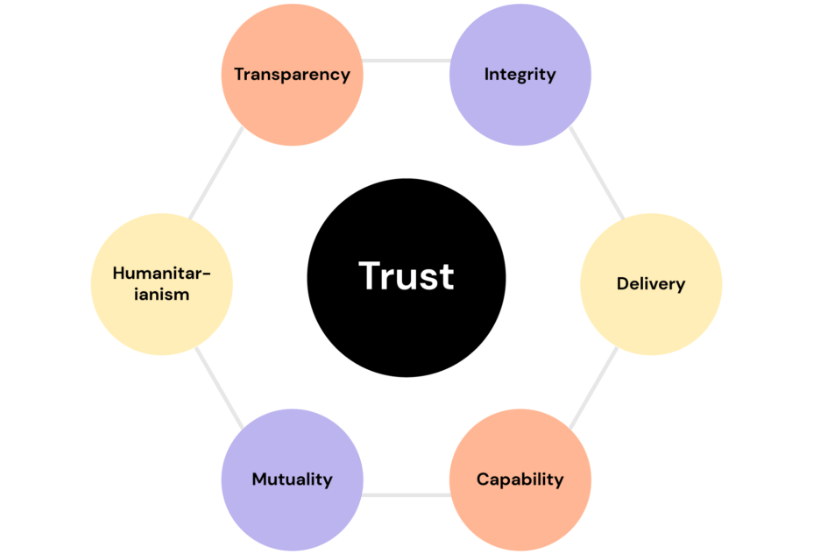Choosing between a brand manager and a marketing manager can be quite challenging when growing your business. These two roles may appear similar, but their responsibilities and focus areas are distinctly different.
This article delves into the specifics of these two positions to help you make an informed decision on who plays what part in pushing your venture forward. Curious? Read on!
Key Takeaways
- Brand managers shape a company’s outward image, ensuring products align with consumer needs and wants.
- Marketing managers develop strategies to promote a company’s products or services and meet revenue targets.
- Brand managers focus on internal brand building while marketing managers focus on external brand building.
What is Brand Management?

Brand Management involves overseeing the development, maintenance, and enhancement of a brand’s image and perception in the market.
Definition and role of a brand manager
A brand manager wears many hats in an organization. They are the ones who shape a company’s outward image. This means they plan, develop, and direct the marketing efforts for a particular brand or product.
Their main role is to ensure that their products align with consumer needs and wants while also boosting profitability. They conduct market research to understand competitors’ strategies, manage internal teams to guarantee all initiatives align with brand vision, and build relationships with vendors and partners.
Furthermore, they carefully craft messaging for advertising campaigns and continually evaluate how to differentiate their brand from others in the marketplace. These professionals not only work on creating an appealing brand image but also keeping it consistent across multiple platforms such as social media channels, website content, product packaging design or even customer service interactions.
Responsibilities of a brand manager
A brand manager is responsible for managing and maintaining the image and perception of a brand. They are in charge of developing strategies for branding a product engaging with consumers, and ensuring that all communication and messaging aligns with the overall brand identity.
One of their key responsibilities is overseeing advertising campaigns and promotional activities to increase brand awareness and attract new customers. They also play a crucial role in conducting market research to understand consumer behavior and preferences, allowing them to anticipate trends and make informed decisions about product development or marketing initiatives.
Additionally, a brand manager handles public relations by building relationships with stakeholders such as media outlets, influencers, and community organizations to enhance the reputation of the brand.
What is Marketing?

Marketing is the process of promoting and selling products or services, involving activities such as market research, advertising, campaigns, communication, and building a positive brand image.
Definition and role of a marketing manager
A marketing manager is responsible for developing and implementing strategies to promote a company’s products or services. They analyze market trends, conduct research on consumer behavior, and identify target audiences.
Marketing managers oversee the creation of advertising campaigns, work with creative teams to develop promotional materials, and collaborate with sales teams to meet revenue targets.
They also monitor competition, track marketing metrics, and adjust strategies as needed to ensure success in the marketplace. Overall, a marketing manager plays a crucial role in driving brand awareness and generating customer interest through effective communication and strategic planning.
Responsibilities of a marketing manager
A marketing manager is responsible for overseeing and implementing marketing strategies to promote products or services. They analyze market trends, conduct market research, and identify target audiences to develop effective marketing campaigns.
Marketing managers collaborate with various teams such as advertising, sales, and product development to create compelling messaging and promotional materials. They monitor the performance of marketing initiatives, track customer feedback, and adjust strategies accordingly.
Additionally, they are in charge of managing budgets, analyzing data for insights, and staying updated on industry trends to drive growth and achieve business objectives.
Differences Between Brand Manager and Marketing Manager

Brand managers focus on internal brand building, while marketing managers focus on external brand building. Brand managers take ownership of the brand strategy and execution, while marketing managers are responsible for promoting products or services through advertising campaigns and communication channels.
Additionally, brand managers have a closer relationship with stakeholders and work to build trust and maintain a positive brand image, whereas marketing managers focus on consumer behavior and market research to develop effective promotional strategies.
Focus on internal vs external brand building
Brand managers and marketing managers have distinct roles when it comes to building a brand. Brand managers focus on internal brand building, which involves developing and maintaining the brand’s image, perception, and messaging within the organization.
They work closely with stakeholders and team members to ensure consistency in how the brand is represented across various channels. On the other hand, marketing managers are responsible for external brand building, such as creating advertising campaigns, promoting products or services, and managing customer communication.
They strategize on how to reach target audiences effectively through different marketing channels. Both roles are crucial in shaping a strong brand presence but focus on different aspects of the branding process.
Ownership of brand strategy and execution
The brand manager takes charge of developing and implementing the brand strategy. They are responsible for crafting the overall image and perception of the brand, ensuring consistency in messaging across various channels.
They work closely with stakeholders to understand their needs and expectations, adapting the strategy accordingly. It is their job to monitor consumer behavior, conduct market research, and stay updated on industry trends to ensure that the brand remains relevant.
Additionally, they oversee the execution of marketing campaigns and initiatives, collaborating with other team members to deliver a cohesive brand experience.
Relationship with stakeholders

The relationship with stakeholders is a crucial aspect for both brand managers and marketing managers. Brand managers are responsible for building and maintaining relationships with various stakeholders such as customers, employees, suppliers, and investors.
They work closely with these groups to ensure that the brand’s image and perception align with their expectations. On the other hand, marketing managers focus on establishing strong connections with consumers through effective communication channels like advertising campaigns and promotional activities.
By understanding the needs and preferences of their target audience, marketing managers can develop messaging strategies that build trust and loyalty among stakeholders. Both brand managers and marketing managers rely on positive relationships to drive success in their respective roles.
Conclusion
In conclusion, while brand managers and marketing managers both play vital roles in promoting and building a company’s image, they have distinct responsibilities. Brand managers focus on internal brand development, crafting strategies to communicate the desired perception and messaging.
On the other hand, marketing managers oversee external promotional efforts, utilizing various channels to reach customers and drive sales. Understanding these differences is crucial for organizations looking to effectively manage their brand and marketing strategies.
FAQs
What is the difference between a brand manager and a marketing manager?
A brand manager focuses on implementing strategies to promote and maintain a company’s image, while a marketing manager plans and coordinates marketing campaigns.
Can the roles of advertising managers, product managers, or digital marketing managers replace either brand or marketing managers?
No, each role has unique responsibilities. An advertising manager handles ad campaigns; product marketers focus on promoting specific products; digital marketers manage online platforms.
Do social media managers perform the same duties as brand strategists?
Not exactly; while social media managers are in charge of handling social media platforms, brand strategists develop big-picture tactics for shaping a company’s reputation.
Who leads market research: public relations managers or market research managers?
Market research Managers take charge in conducting market analyses to shape effective strategies whereas Public Relations Managers build positive relationships with public stakeholders.
What other key positions exist within businesses apart from Brand Managers and Marketing Managers?
Other essential roles include sales manager who drives sales objectives, communications manager who oversees internal and external communication efforts, PR Manager for crafting favorable public images,and Marketing Director who directs all aspects of an organization’s Business strategy.




